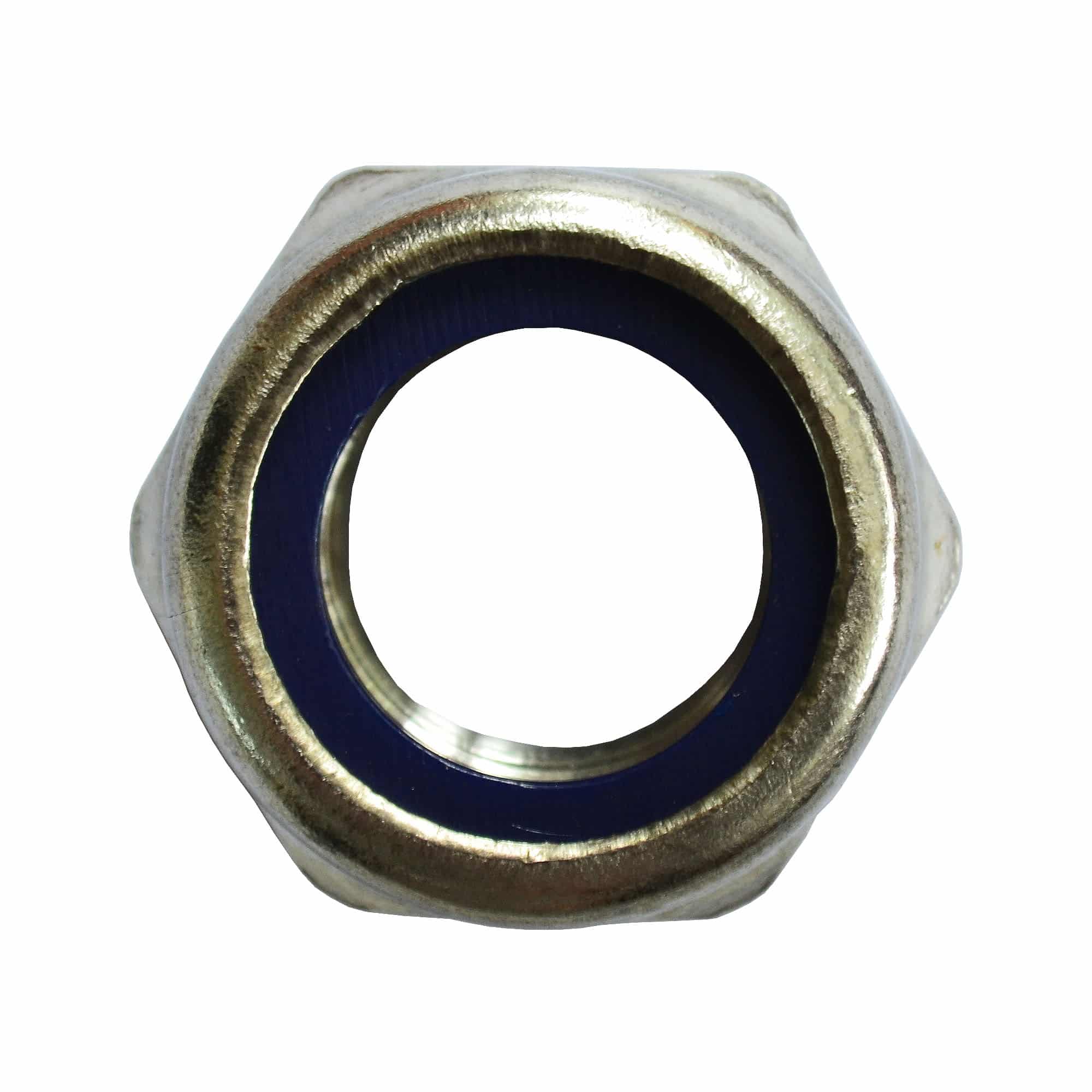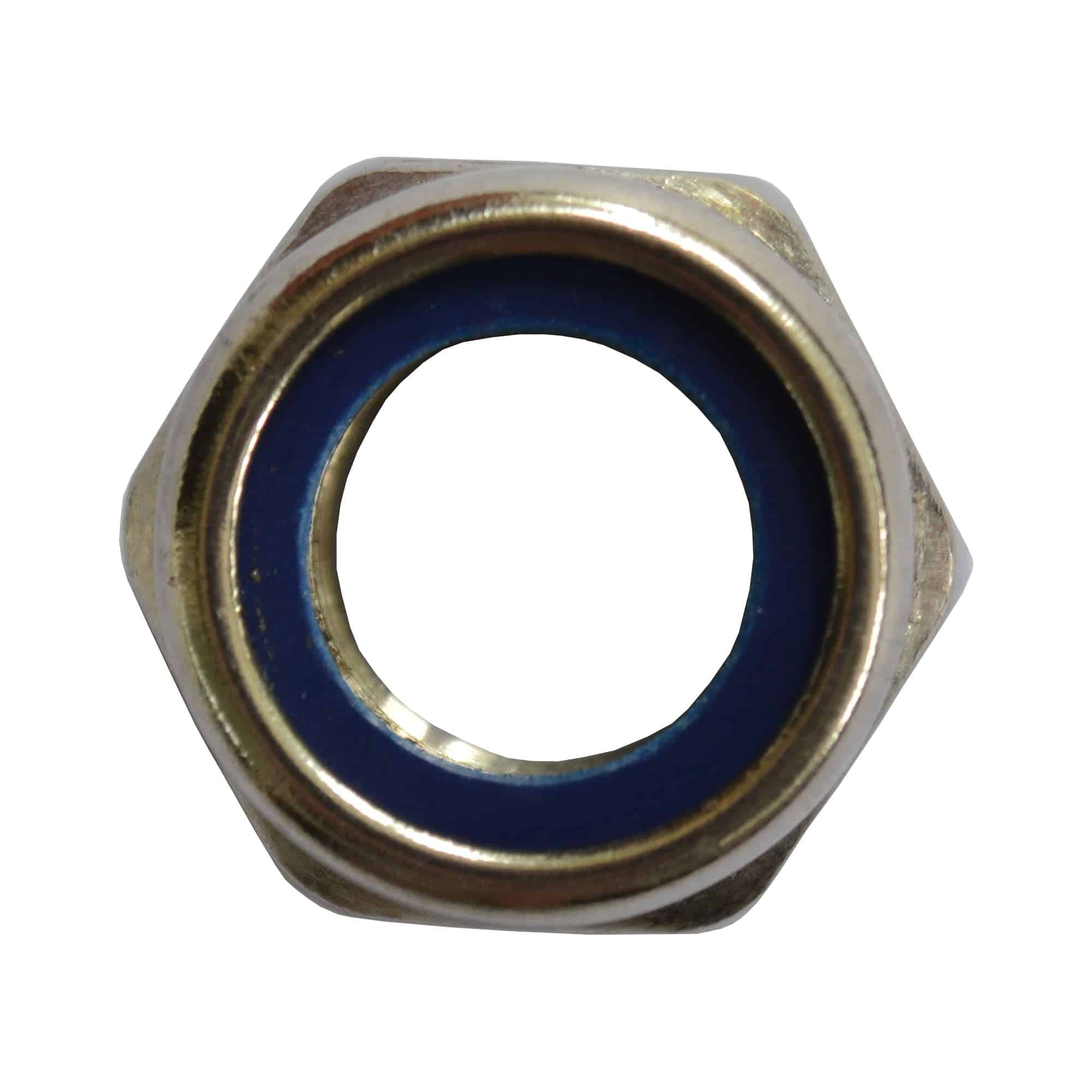- Massive Range
- FREE UK Delivery
- Rapid Dispatch
- Massive Range
- FREE UK Delivery
- Rapid Dispatch
- Massive Range
- FREE UK Delivery
- Rapid Dispatch
£1.03 – £24.16 inc VAT


This website is secured:
£ MULTIBUY SAVINGS – Order 3 For 10% Off
✔ Specialists In Rapid Shipments Of Any Size
✔ FREE UK Delivery Included
✔ Immediate Express Dispatch From Stock
✔ Tracked Delivery with Order Updates
✔ 30-Day Returns Accepted
@ ☏ Larger Pack Quantities Available
Let’s talk about Nyloc nuts – specifically the ones made by Speciality Metals. These little guys are durable, versatile and low-maintenance, making them a great choice for all kinds of projects. Whether you’re building a boat or just fixing up your house, Nyloc nuts are a great option because they’re corrosion-resistant and can stand up to even the toughest marine environments. Plus, their nylon insert means they’re extra secure and won’t slip or loosen over time. So if you’re looking for a reliable and long-lasting fastener, look no further than Nyloc nuts from Speciality Metals.

Top quality stainless steel Nyloc nuts supplied straight from Warrington, UK.
Speciality Metals offer a massive range of metal products to suit all levels of budget and any size of job. These nuts are offered to compliment our range of nuts, bolts & washers. We pride ourselves on our low prices and rapid fulfilment. Our fasteners are available from immediate stock, so dispatch would be fair immediate.
Many applications require Nyloc nuts, especially when vibration, loosening and security are a concern. Nyloc Nuts, equipped with a nylon insert, have proven to be effective locking nuts, reducing vibration, unwanted movement and bolt unthreading. These stainless steel nyloc nuts are constructed with grade 316 stainless steel, making them durable and versatile, with a low maintenance profile that makes them an ideal choice for industrial settings. Furthermore, its corrosion-resistant properties make it a reliable choice for environments where a stable and reliable fastener is essential. Those seeking uncompromised quality choose Specialty Metals’ product because it ensures a secure fit and is highly resistant to marine environments.
Key product details:
Speciality Metals is known to be the United Kingdom’s best up-and-coming small-quantity metal company.
Furthermore we stock a vast range of plain wire mesh and perforated metal options that compliment our sheet metal range perfectly.
Over 50,000 customers of Specialty Metals are provided with fast, friendly customer service every year. We’re the place to try when you need metal of any shape and size. We’re based in Warrington, UK. We pride ourselves on our rapid turnaround and a large range of options.
The stainless steel component of Nyloc nuts, particularly those made from grades like 316, is highly resistant to environmental factors, including UV radiation. However, the nylon insert in Nyloc nuts is susceptible to degradation when exposed to UV radiation for extended periods. Over time, UV exposure can cause the nylon to become brittle and lose its elastic properties, compromising its ability to function as a reliable locking mechanism.
The rate at which this degradation occurs can depend on several factors, including the specific type of nylon used, the intensity and duration of UV exposure, and the presence of any UV stabilisers in the nylon material. Some nylon materials are formulated with UV stabilisers to slow down the rate of UV degradation, but these are generally not completely UV-proof.
If your application involves prolonged exposure to UV radiation, and the locking feature of the Nyloc nut is critical, you may want to consider alternative locking mechanisms or materials that are more UV resistant. Always consult with engineers or technical experts to choose the appropriate fasteners for your specific needs, especially for critical or long-term applications involving UV exposure.
Nyloc nuts made from 316 grade stainless steel are often considered suitable for marine applications due to the high corrosion resistance of this grade of stainless steel. The 316 grade is especially resistant to saltwater corrosion, making it ideal for use in harsh marine environments. However, there are some important caveats to consider:
Nylon Insert: While the stainless steel component is highly resistant to marine conditions, the nylon insert may not have the same level of resistance to long-term moisture exposure or to the specific chemical conditions found in marine environments. It’s essential to assess whether the nylon insert will be compromised in the application you’re considering.
Temperature Fluctuations: Marine applications may involve significant temperature fluctuations, and it’s important to consider how these could affect both the steel and the nylon components. Nylon can lose its effectiveness at low temperatures and may deform or melt at high temperatures.
UV Exposure: As mentioned in previous answers, nylon is susceptible to UV degradation. Marine applications often involve significant exposure to sunlight, so you’ll need to consider whether UV radiation will degrade the nylon insert over time.
Material Compatibility: Make sure that the Nyloc nuts are compatible with the materials they will be in contact with, as galvanic corrosion could occur between dissimilar metals.
The primary difference between 316 and 316L stainless steel is the amount of carbon contained within the material. Both are austenitic stainless steels with similar chemical compositions, containing chromium, nickel and molybdenum, but 316L is a low-carbon variant of 316.
Carbon Content: The “L” in 316L stands for “low carbon.” Specifically, 316L typically has a maximum of 0.03% carbon, while 316 has a maximum of 0.08% carbon. This may seem like a minor difference, but it has implications for the material’s properties.
Weldability: The lower carbon content in 316L minimises harmful carbide precipitation during the welding process, which means that it is generally more resistant to corrosion around welded areas than 316. This makes 316L preferable for welded structures or for applications where welding is required.
Corrosion Resistance: Both grades offer excellent resistance to a wide variety of corrosive environments, including saline solutions, acids and bases. However, the lower carbon in 316L can offer a slight advantage in resistance to sensitization, a form of corrosion that can occur after welding.
Mechanical Properties: Both types have similar mechanical properties, but 316L is somewhat weaker at elevated temperatures.
Applications: Both types are used in a range of applications, including in marine environments, food and chemical processing and medical devices. The choice between the two often comes down to the specific requirements of a project, including the necessity and type of welding that will be involved.
Cost: Generally, the cost between the two is comparable, although the specific costs can depend on other factors like the form of the material (e.g., sheet, bar, or pipe) and the current market prices for stainless steel.
The ability of Nyloc nuts to handle chemical exposure depends on both the material of the nut itself and the material of the nylon insert. The 316 or 316L grade stainless steel often used for Nyloc nuts provides excellent resistance to a wide range of chemicals, including various acids, bases and solvents. However, the nylon insert is generally less resistant to chemicals and may degrade upon exposure to strong acids, bases or certain solvents.
Different types of nylon have varying degrees of chemical resistance, but in general, you should be cautious about using Nyloc nuts in environments where they will be exposed to harsh chemicals. Over time, chemical exposure can cause the nylon to swell, become brittle or otherwise degrade, compromising its effectiveness as a locking mechanism.
If your application involves chemical exposure, it’s important to consult with technical experts and potentially conduct compatibility tests to ensure that both the stainless steel and nylon components of the Nyloc nut will meet your requirements. There are also alternative locking mechanisms designed specifically for chemical resistance, such as all-metal locking nuts or chemically resistant polymer inserts, which may be more appropriate for your application.
Check out our recent article ‘Unlocking the Benefits of Nyloc Nuts: The Ultimate Guide‘ for a deeper dive into nyloc nuts. Our goal for our blogs and help guides is to answer as many questions as possible to help to explain the possibilities of mesh to our customers.
We are also very proud of our ever expanding YouTube channel.
Contact us today if you have any questions at all. We are always really keen to help in any way that we can.
We are also very proud of our highly popular eBay store, check us out there too.
Thank you for checking out our product.
£11.25 – £217.00 inc VAT

£11.25 – £217.00 inc VAT

Speciality Metals
Unit 1, Farrell Street, Warrington,
Cheshire, WA1 2WW, United Kingdom
Quick Links
Payment Options
